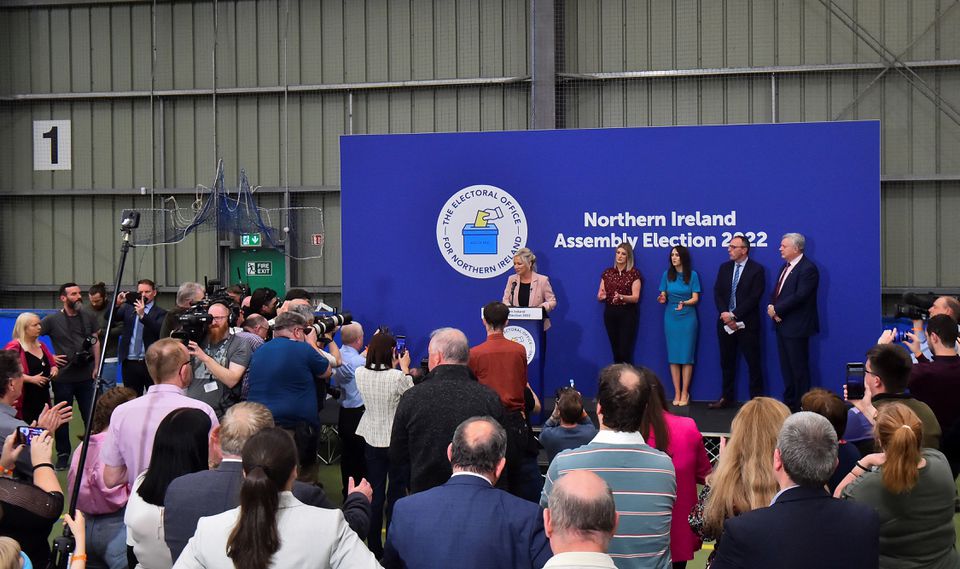
Sinn Fein, the erstwhile political branch of the Irish Republican Army (IRA), has called for a debate on a united Ireland, hailing its first victory in a Northern Ireland Assembly election as a ‘defining moment’ for the British-controlled area.
With two seats to declare, Sinn Fein led the pro-British Democratic Unionist Party (DUP) by 27 to 24, making it the first Irish nationalist party to become the largest in the devolved legislature.
‘Today marks a pivotal turning point in history. It is a watershed moment in our political history and for our people,’ Michelle O’Neill, the leader of Sinn Fein in Northern Ireland, said her party received 29 percent of first-preference votes, compared to 21.3 percent for the DUP.
She stated that the party’s goal of integrating the region with the Republic of Ireland should now be the subject of a ‘honest debate.’
Because the referendum required to leave the United Kingdom is at the discretion of the British government and likely years away, the victory will have no impact on the region’s position.
However, the symbolic significance is enormous, as it marks the end of a century of dominance by pro-British parties, which are overwhelmingly backed by the region’s Protestant majority.
The DUP, a key proponent of Britain’s secession from the European Union, has lost support as a result of its position in post-Brexit negotiations between London and Brussels, which resulted in trade barriers between Northern Ireland and the rest of the UK.
In a Twitter message hailing a ‘really historic victory,’ Scottish First Minister Nicola Sturgeon, who is also leading a movement to secede from the UK, was among the first to congratulate Sinn Fein.
While the largest party in Northern Ireland’s compulsory power-sharing government has the authority to nominate a candidate for First Minister, difficulties with the DUP mean that an appointment might take months.
‘The people have spoken,’ O’Neill replied when asked by a journalist if she intended to become the region’s first Irish nationalist First Minister.
Jeffrey Donaldson, the DUP’s leader, said his party would not join the government unless the protocol controlling Northern Ireland’s commerce with the rest of the UK following the UK’s withdrawal from the EU was completely revised.
The DUP campaigned on a promise to abolish what it calls an Irish Sea border.
Before making a decision, Donaldson said he would wait to hear what British Prime Minister Boris Johnson has to say about the issue in a speech next week. continue reading
Brandon Lewis, the British government’s Northern Ireland minister, issued a statement urging the parties to establish an executive as soon as feasible.
During the three decades of fighting over Northern Ireland’s status within the United Kingdom, which ended with a 1998 peace settlement, Sinn Fein was shunned by the political elite on both sides of the Irish border for its links to Irish Republican Army brutality.
Since then, it has remade itself to become the most popular political party in the Republic of Ireland, where it has built a strong base by focusing on issues like the cost of living and healthcare.
In the Northern Irish elections, it took a similar approach, focusing on economic concerns rather than Irish unity to appeal to middle-ground voters.
The election follows demographic trends that have long suggested that pro-British Protestant parties would be supplanted by largely Catholic Irish nationalist parties who favour unification of the north with the Republic of Ireland.
In the election on Thursday, all unionist candidates received slightly more votes than all nationalist candidates.
With 17 seats, the cross-community Alliance Party achieved its best ever result in its effort to become a third pillar of the democratic system.

Post Your Comments